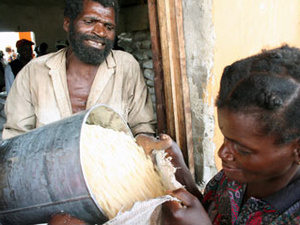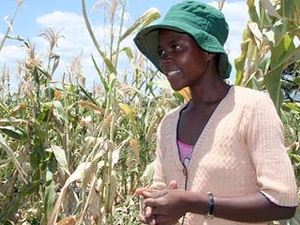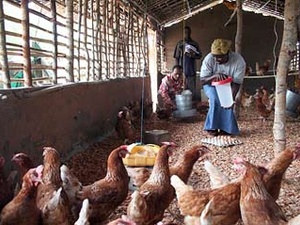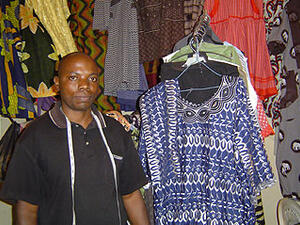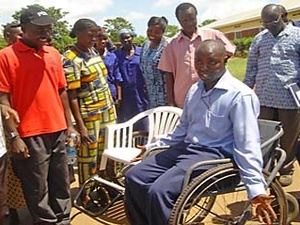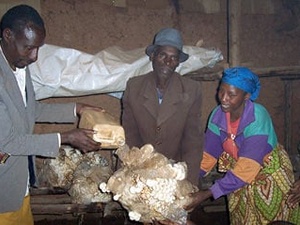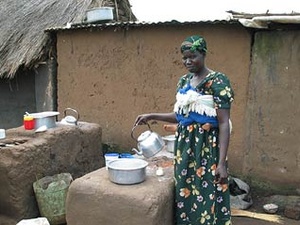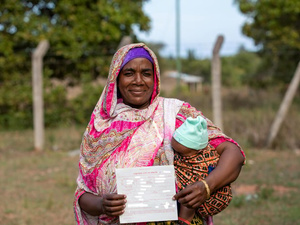Crafting a future in Sierra Leone
Crafting a future in Sierra Leone
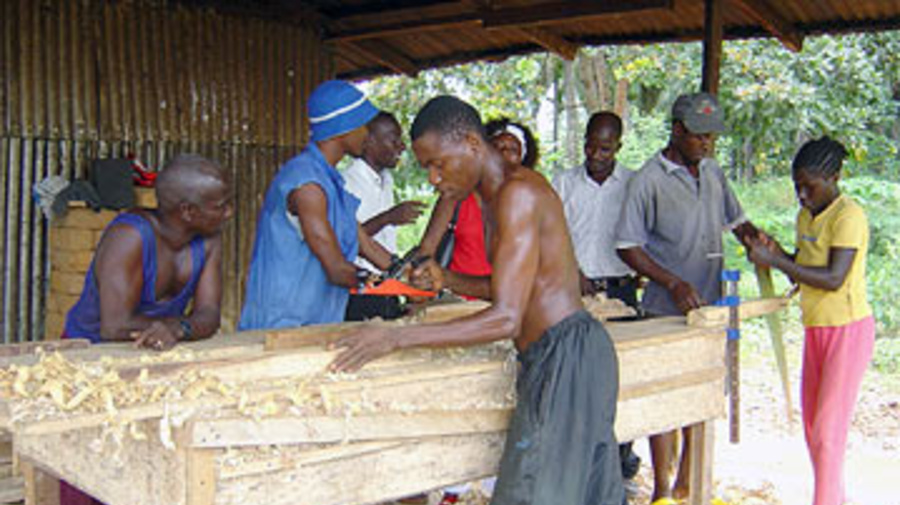
A carpentry class in Kissy town settlement, Sierra Leone. Photo courtesy of and
KISSY TOWN, Sierra Leone, April 11 (UNHCR) - A group of Liberian refugees and their Sierra Leonean hosts have graduated from a six-month skills training programme to help them attain self-reliance and improve their livelihood options.
The graduation ceremony, held in Sierra Leone's Kissy Town settlement last Friday, was attended by 58 of the 61 graduates, as well as representatives of the National Commission for Social Action (NaCSA), Ministry of Education, UNHCR, the Lutheran World Federation (LWF) and the Sierra Leonean Opportunities Industrialisation Centres (SLOIC). They celebrated the achievements and dedication of the graduates, who were trained in a variety of fields including computer literacy, carpentry, masonry, catering, tailoring, gara tie-dyeing, needlework, soap-making and agriculture.
"The aim of this project was to develop the productive capacity of this group by empowering them to be more productive and self reliant and acquire skills that will prepare them for any durable solution," said NaCSA representative Amadu Bangura about the programme, which was sponsored by UNHCR and implemented by LWF and SLOIC.
A total of 120 Liberian refugees and Sierra Leoneans from the host community completed the skills training programme in 2004. This year, in addition to the start-up kits which include sewing machines, carpentry tools and wheelbarrows, graduates also received basic supplies which will help them make their first wares. Items such as cloth, dye and basic food supplies are also given to participants who completed the tailoring, gara tie-dyeing and catering classes.
"The skills training programme is about providing you with choices," UNHCR's Acting Representative in Sierra Leone, Andrew Mayne, told the graduates. "You now have more options to make a living."
Over 60 percent of the participants were women. Mende Sherif, a 60-year-old mother of 10, learned how to make soap. With her start-up kit in hand, she declared, "Now I can do something for myself, instead of relying on my children to care for me."
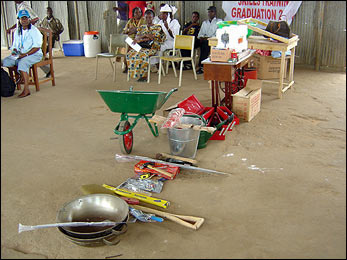
Start-up kits for the skills training programme graduates.
The refugees who participated in the programme are from the old caseload of refugees who arrived in Sierra Leone in the early 1990s. Unlike the over 50,000 refugees from the new caseload who arrived after 1998, these refugees do not live in camps, but choose to live in Sierra Leone's urban centres.
Many who completed the skills training programme last week have applied for resettlement to another country. Not all will be accepted, but no matter where they go, they will take their newly acquired skills with them.
By Rachel Goldstein-Rodriguez
UNHCR Sierra Leone


